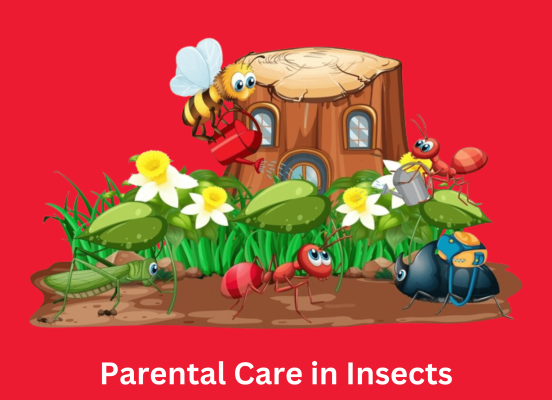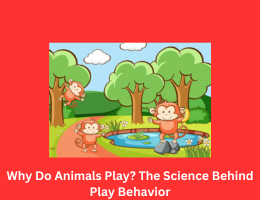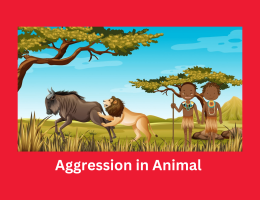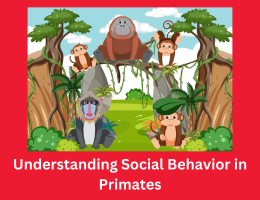
Parental Care in Insects: Exploring Diverse Strategies and Their Evolutionary Significance
- By admin --
- Tuesday, 12 Mar, 2024
Parental care in insects encompasses a wide array of behaviors and strategies aimed at enhancing the survival and development of offspring. From the provisioning of food and protection to elaborate nest construction and defense, insect parents exhibit remarkable adaptations to ensure the welfare of their progeny. Analyzing these diverse parental care strategies provides valuable insights into the evolutionary dynamics of insect societies and the ecological relationships between parents and offspring.
One of the most common forms of parental care in insects is the provision of food to offspring. Many insect species, such as bees, wasps, and ants, engage in trophallaxis, a process of regurgitating food from the parent to the offspring. In social insect colonies, specialized castes, such as workers, undertake the task of feeding and caring for larvae, while the reproductive individuals focus on egg-laying and colony defense. This division of labor ensures efficient resource allocation and maximizes colony productivity.
In addition to food provisioning, insect parents often invest significant time and energy in constructing and maintaining nests or brood chambers for their offspring. Nest-building behaviors vary widely among insect species and can range from simple burrows or tunnels to elaborate structures such as leaf nests, mud tubes, or silk cocoons. These nests provide protection from predators, adverse environmental conditions, and microbial pathogens, creating a safe and stable microenvironment for larval development.
Elaborate nest construction is particularly evident in social insects such as ants and termites, which build extensive underground colonies with complex tunnel networks and chambers for rearing brood. The architecture of these nests is finely tuned to the specific needs of the colony, including ventilation, temperature regulation, and waste management. In some cases, such as in leafcutter ants, workers cultivate fungus gardens within their nests, which serve as a nutrient source for both adults and larvae.
Parental care in insects also involves defense against predators, parasites, and pathogens that pose threats to offspring survival. Many insect parents exhibit aggressive behaviors to deter potential predators or intruders from approaching their nests or offspring. For example, some species of bees and wasps sting intruders or release alarm pheromones to mobilize nestmates in defense of the colony. In other cases, parents may camouflage or conceal their nests to avoid detection by predators.
Communication plays a crucial role in coordinating parental care behaviors and maintaining social cohesion within insect colonies. Chemical signals, such as pheromones, are used to convey information about food availability, nest location, and reproductive status among colony members. In social insects, sophisticated communication systems enable cooperation and coordination among individuals, allowing for efficient division of labor and collective decision-making.
The evolution of parental care in insects is shaped by a combination of ecological, social, and genetic factors. In species with solitary lifestyles, parental care behaviors are often driven by the need to maximize offspring survival in challenging environments. In contrast, social insects exhibit complex forms of parental care arising from the cooperative interactions and division of labor within colonies. Genetic relatedness, kin selection, and inclusive fitness play important roles in shaping the evolution of altruistic behaviors and cooperation among relatives in insect societies.
Parental care strategies in insects exhibit remarkable diversity and complexity, reflecting the diverse ecological niches and life histories of different species. While some insects invest heavily in individual offspring care, others adopt a more generalized approach, providing minimal parental investment and relying on high reproductive output to compensate for offspring mortality. This diversity highlights the versatility and adaptability of insect parental care strategies in response to environmental challenges and selective pressures.
Insect populations and their parental care behaviors are seriously threatened by human activities including pesticide usage, habitat degradation, and climate change. One possible cause of decreasing population size and fertility is that insect parents care is disturbed due to lack of nesting places, division of land or food poisoning from chemicals. We have to adopt conservation strategies aimed at preserving variety among insects and entire ecological processes if we are to sustain the intricate relationships existing among bugs together with their offsprings.
In conclusion, In insects, a variety of actions and strategies are employed as part of parental care to guarantee the growth and survival of progeny. Incredible qualities, such communication and defensive systems, among others, like building nests or supplying food for their young, enable insects to withstand the difficulties of caring for their offspring in a variety of conditions. Analyzing these issues can provide insights into the ecological interactions between various species and their progeny, as well as the Darwinian development of insect communities.





